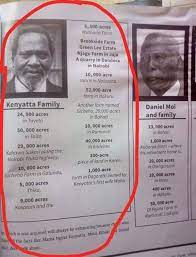 |
Sudi wa Namachanja |
Today we sojourn to the land of Ebukhone...
Omukhone – Omwalie Omusilambongo, Owambukha Njoya Khumufunje wakwa engelekha khuluusi [Omukhone express allegiance to Bamwalie, does not dine on antelope meat, he came to current Bukusuland by making a rope bridge....and landed to the other side on a thread].
We visit the homestead of Otunga, a successful Omukhone with vast crops and unnumbered livestock. There is an emotionally disturbed barren wife. It is on a cold rainy when the barren wife of Otunga heads to junk heap to throw ashes. She notices a shivering boy, naked and destitute. Pity engulfs her and she quickly relays the news to Otunga who joyfully agrees to adopt the son as his own. The pity looking was Ekobi, son of Lusaala (Omutura). Running away from hunger, he lands in Wakoko’s territory in Otunga’s lukoba.
Dearly loved, Ekobi grows to be quick and agile. He was a superb herder, helping in the fields and chasing birds that might destroy crops. He lightens up lukoba, more especially to Otunga’s barren wife. Ekobi reaches marriageable age and Otunga consults his friends Bamuyonga who offer Nabulobi as bride. He even pays the bride price as per the custom.
Out of Nabulobi, Khisa is born (One born after twins). Later Khisa grows into a fine young man and wins over Nakhumicha, a daughter from Bakimweyi. Through Nakhumicha, Khisa becomes the father of Namachanja (senior) – born around 1840. Then, 22 years later, Namachanja is circumcised under Bamaina age-set. Rising steadily, Namachanja assumes leadership of the Bukusu community, albeit in a controversial way...
This is how it happened.
One day, Namachanja, now a teenager is thatching one of his father’s huts. He notices his brother dragging an animal. His brother explains that he has stolen it from one of the traps in the forest. He conspires to hide it so that no one could notice. Soon, Wakoko’s sons arrive in the homestead having followed the animal trail. However, Namachanja and the brother profusely deny any possibility of seeing the loot despite them insisting on seeing the trail. The conflict escalates and a village elder is called. Upon seeking permission, the sons of Wakoko seek services of a witch. They pledge that whoever touched their animal shall surely die.
And it came to pass. After a few days, Namachanja’s brother falls ill. Some villagers unsuccessfully argue him to confess so that he may be healed. The situation gets worse each day. Finally, on his death bed, he confesses it but then it is too late. Upon hearing the death of Namachanja’s brother, maternal Uncles Bakimweyi come blazing on Wakoko’s sons declaring war. They raid the homestead, beat up the sons and seize Wakoko’s royal insignia and hands over to Namachanja. As they were ruling instruments, Namachanja is bestowed the leader of Bakhone clan.
Namachanja is wise and effectively fits the shoes. He is loved and the clan looks up to him as one having magnetic charm and character. He is ambitious and kind-hearted, solving their cases and helping the poor. He is a good listener too and his fame skyrockets in the community.
NAMACHANJA’S SEARCH FOR HEIR-BOY
However as time goes by, Namachanja is internally disturbed. He has not been able to sire a boy, an heir to his leadership. He has first married Mukoya, from Bawanga Bamutsetse. Mukoya was daughter of Sakwa, the uncle of Nabongo Mumia who ruled the Bawanga Mukulu (Wanga Kingdom). Mukoya gave Namachanja a fine young girl, Khakasa who he loved but he still desired a son.
Namachanja gets frustrated and goes on a marrying spree in the effort to get an heir son. He marries Mulati, an Omusamia girl for a certain quantity of Kamalwa Kamakhalange (fried fermented flour that makes Busaa). Still, he fails in getting a son. Then, as the tilling season of 1874 approached, he sojourns to Ebusamia and brokers a deal; He is accorded an Omusamia girl (Obilika) in exchange of two Samia hoes (Jembes). He also goes to Balukulu and he’s given Mukite who also becomes his wife.
It was in 1875, that luck struck to Namachanja. Obilika, his Samia wife, a year into marriage begets him a baby boy. The long awaited son has the striking resemblance of his father. Namachanja is over-joyed and tears linger in his eyes.
He lifts the newborn boy-son up skywards and to the amazement of those around him, he says ‘I shall call him Sudi’ (After the notorious Swahili Slave Trader – Sudi wa Pangani). Sudi would later succeed his father in community leadership. Later Namachanja is laid to rest, peacefully having handed leadership and power to his beloved first-born son Sudi.
In a later account, Sudi welds more power than his father, rising as first modern Chief of Babukusu under colonial rule in the region of North Kavirondo (Wakaa-virondo...people who likes siting on virondo/visigino).
Stay tuned for part II... the life and times of Sudi wa Namachanja, Respected Paramount Chief and ‘sexual athletic’ [no offense] having with 117 wives and 173 children...










Comments